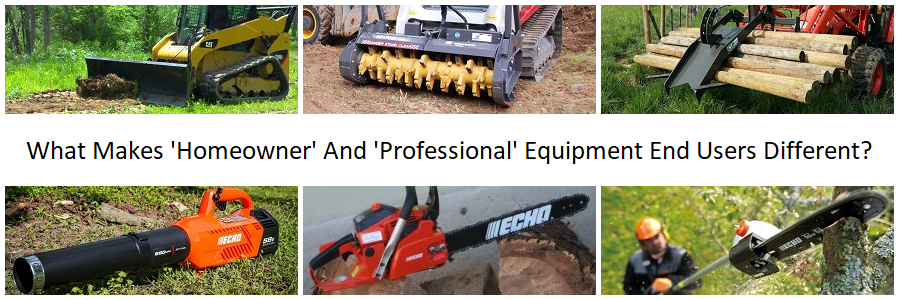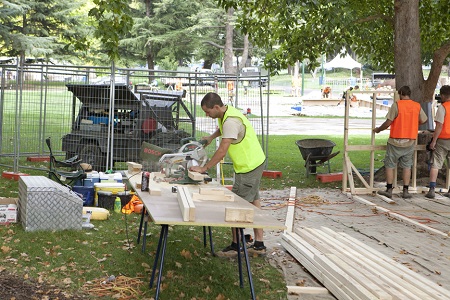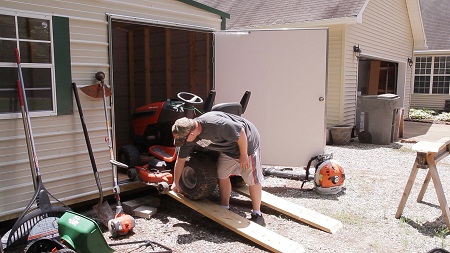What Makes 'Homeowner' And 'Professional' Equipment End Users Different?
by Black Ink Team

There are two different types of customers when it comes to B2C (business-to-consumer) equipment sales: homeowner and professional. Homeowner customers are people who are buying equipment for their own personal use - a lawnmower to mow their lawn with, a pressure washer to wash their car with, a portable generator to bring with them on camping trips, etc. Professional customers are businesses that repeatedly buy the same equipment (or at least equipment from the same category, because they may at some point choose to upgrade). Examples of professional customers in the power equipment industry include landscaping companies, construction companies, farmers, and so on.
With homeowner customers, you as a dealer want to cross-sell them as much as possible. Cross-selling (as opposed to upselling) is when you convince customers to buy products from different categories; for instance, you may convince someone in the process of buying a leaf blower to also buy a mulcher. Since homeowner customers probably won't buy too many of the same product during their lifetime, you ideally want to sell them products from as many different categories as you can. It is usually harder to sell to new homeowner customers than it is to cross-sell to existing homeowner customers.

With professional customers, the main goal (although you should still try cross-selling) is to upsell them as much as possible. Upselling is when you persuade a customer to buy a more expensive model; for instance you might be able to convince a forestry company that they should buy top-of-the-line chain saw models rather than base models (because they will last longer and need less maintenance). The reason that you as a dealer want to upsell professional customers is that whenever their equipment breaks down they will more likely restock with more expensive units.
During the sales process you want to gather as much information about your customers as possible, be they homeowners or professionals. Held in a customer data platform, such as a CRM, facts about customers can be viewed in aggregate to give you a sense of who your customers are overall. You may find that most homeowner customers who buy products from your store are male, for example, or you may find that most professional customers who buy products from you have around fifty employees. Using insights such as these lets you fine-tune your marketing campaigns and build more precise customer profiles.

Homeowner customers for the most part will walk right into your store, maybe talk to one of your salespeople, choose a product and then checkout - but with professional customers the 'sales dance' will most likely involve more steps. They may never come to your store, and instead conduct business completely over the phone. They might try to negotiate, promising repeat business to you and asking for special discounts in return for their customer loyalty. From a balance sheet point-of-view, it may make sense to enter into such an agreement, because then you will have customers who are guaranteed to make periodic repeat purchases over a period of time. Obviously, it is up to you what level of discount would be worth that amount of fiscal security. Although professional customers generally have no use for showrooms (since they already know the exact types of equipment they want, perhaps even down to the model) it still can prove useful to have a physical selling location if most of your customers are professional. 'Face-to-face' meetings typically are more conducive to building trust, which is a key element in good customer relationships.
